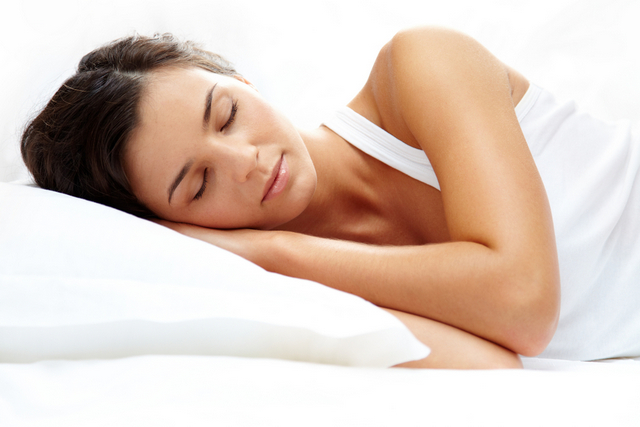We are always told by our mother, our doctor or any health professional that good nutrition, regular exercise, and restful sleep are the keys to good health and happiness. When sleep is lacking it will cause issues such as illness, emotional unrest, fatigue and general underperformance, just to name a few. Good sleep is also often a simple and speedy remedy to many simple illnesses, lethargy, poor mood or poor athletic performance.
Poor sleep is such a common complaint, that I thought it may be helpful to discuss how to gain some quality sleep. So here is Part 1 of Tips for Better Sleep. I hope you find it useful.
What is poor sleep due to? While it may be a symptom of physical illness or emotional upset, it is often due to acquiring poor sleep habits.
GENERAL STRATEGIES FOR RESTFUL SLEEP
- Exercise in the morning and early afternoon improves stage 4 sleep (deep, restful sleep). Deep sleep helps us feel refreshed and relaxed in the morning – how many times have you woken up and feel tired? Try to complete exercise no less than 3 hours before bedtime as this will leave you over stimulated.
- Mind: Keep your brain stimulated throughout the day so it is ready for bed come night time.
- Stress: It is important to manage stress. Consult counseling when required.
- Bed use: Only use your bed for sleeping and sex. Do not use it to watch TV, study or to do paperwork at night, this can cause you to associate stress with your bedroom. Your brain should only associate bed with sleeping and pleasure, not other tasks.
- Limit sleep medication: Do not become reliant on these, use sparingly and skip nights.
DIETARY ADVICE
- Food: A heavy or spicy meal can overload your digestive system and create discomfort when you sleep and cause you to wake. And empty stomach can be equally problematic, so a light, protein rich snack prior to bed is a good idea. Yoghurt is useful as it is a source of protein and can help settle your stomach and prevent hunger pains later in the night.
- Supplement: If you fall asleep easily but wake and cannot get back to sleep, then 1 gram of niacinamide (B3) before sleep can often help.
- Water: Do not gulp large amounts of water prior to bed as it can cause waking to use the toilet. Stay sensibly hydrated and sip water in small volumes.
- Alcohol: Best practice is to avoid alcohol 4 hours prior to bedtime. Alcohol is a depressant (it slows your brain) and can initially cause drowsiness, however it leads to less deep sleep and shortens sleep cycles creating broken sleep. Sleep apnea and snoring are also aggravated by alcohol.
BEFORE BEDTIME
- Television: Do not watch anything overly stimulating or violent just prior to bed. Use this time to settle.
- Calm down prior to bed: Use this time to think about the day ahead, prepare food/clothes/bag. Set aside time to plan jobs, problem solve, and think. Doing this now will mean you don’t think about it when you should be sleeping. Listening to calm music, taking a warm bath and breathing exercises are all great ways to wind down and relax your body and mind.
- Sleep Environment:
- Temperature: Cooler is better than too hot, as this can lead to tossing and turning.
- No clock! If in view, constant checking of the clock can cause insomnia.
- Dark room: As dark as possible, as this is how we evolved to sleep. Use a night mask if you work night shift.
- Less noise means less stimulation and better sleep. Use ear plugs if necessary. Gentle continuous background noise is OK such as a fan or soothing sounds/music to disguise other uncontrollable street noise.
- Mattress: Not too small, hard, soft or old. Evaluate the comfort of your mattress every 8-10 years. A bad mattress can reduce the quality of your sleep. An innerspring mattress with foundation has been shown to create the least tension, strain, and muscle fatigue on the lower back.
- Posture: Sleeping on your back is a neutral position for your spine and a pillow under the knees can help maintain spinal curves. Sleeping on your side may be an option for untreated snoring or may be easier for you to fall asleep. Snoring may also be improved by adding pillows to your head/neck. Stomach sleeping can cause poor neck posture and twisting and can even strain some joints. It also causes your low back to arch excessively. Our Osteopaths can give you plenty of helpful advice on improving your sleeping position if you are noticing any soreness or other issues.
Continue Reading Part 2 of Tips for Better Sleep.
Dr Brendan O’Louglin is an Osteopath at Melbourne Osteopathy Sports Injury Centre. He has experience managing severe acute working and sporting injuries as well as chronic postural dysfunction and medical conditions.
If you want to discuss any aspect sleep or health with Brendan or one of our other practitioners, please feel free to ask a question, contact us or email us at info@

